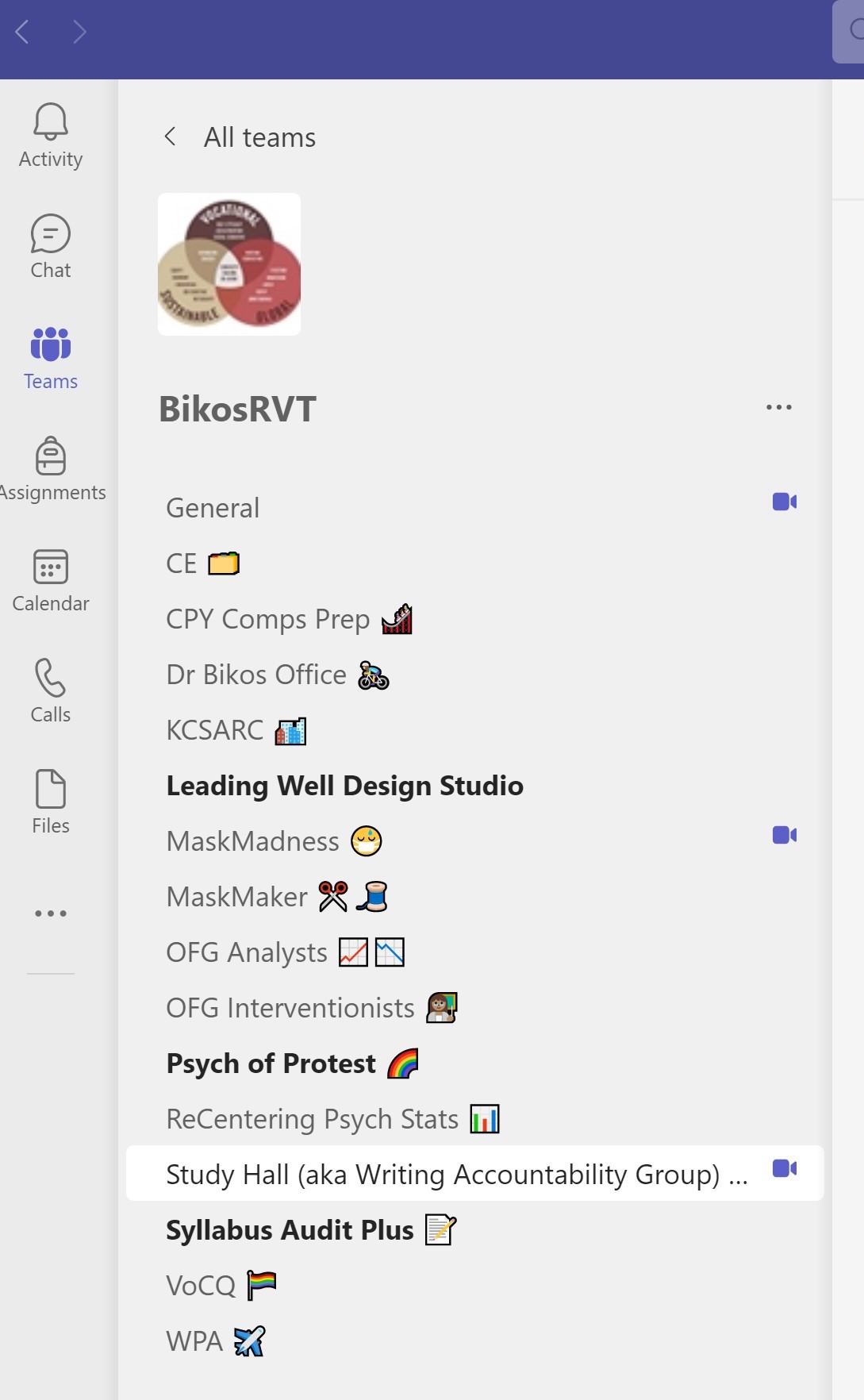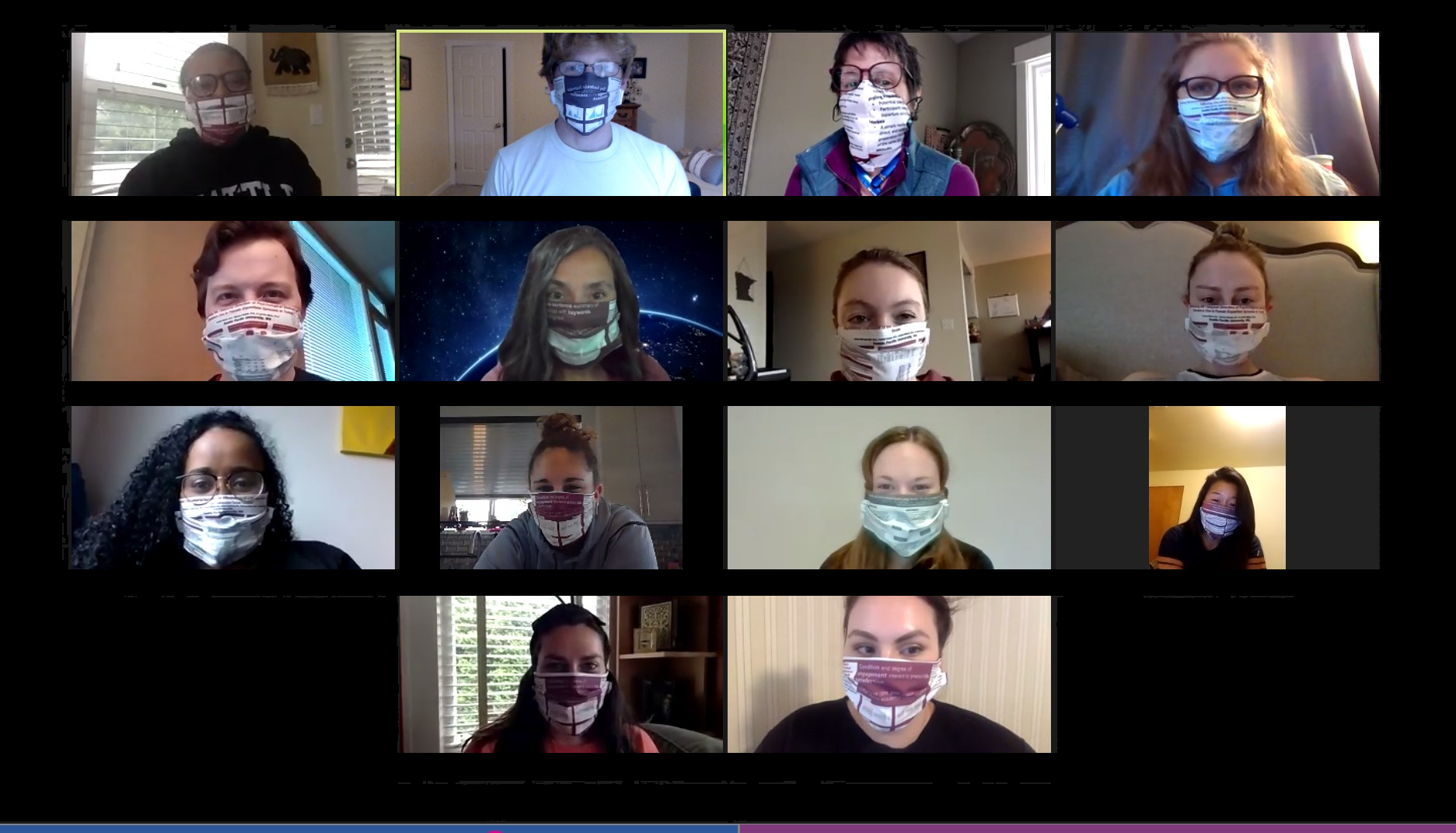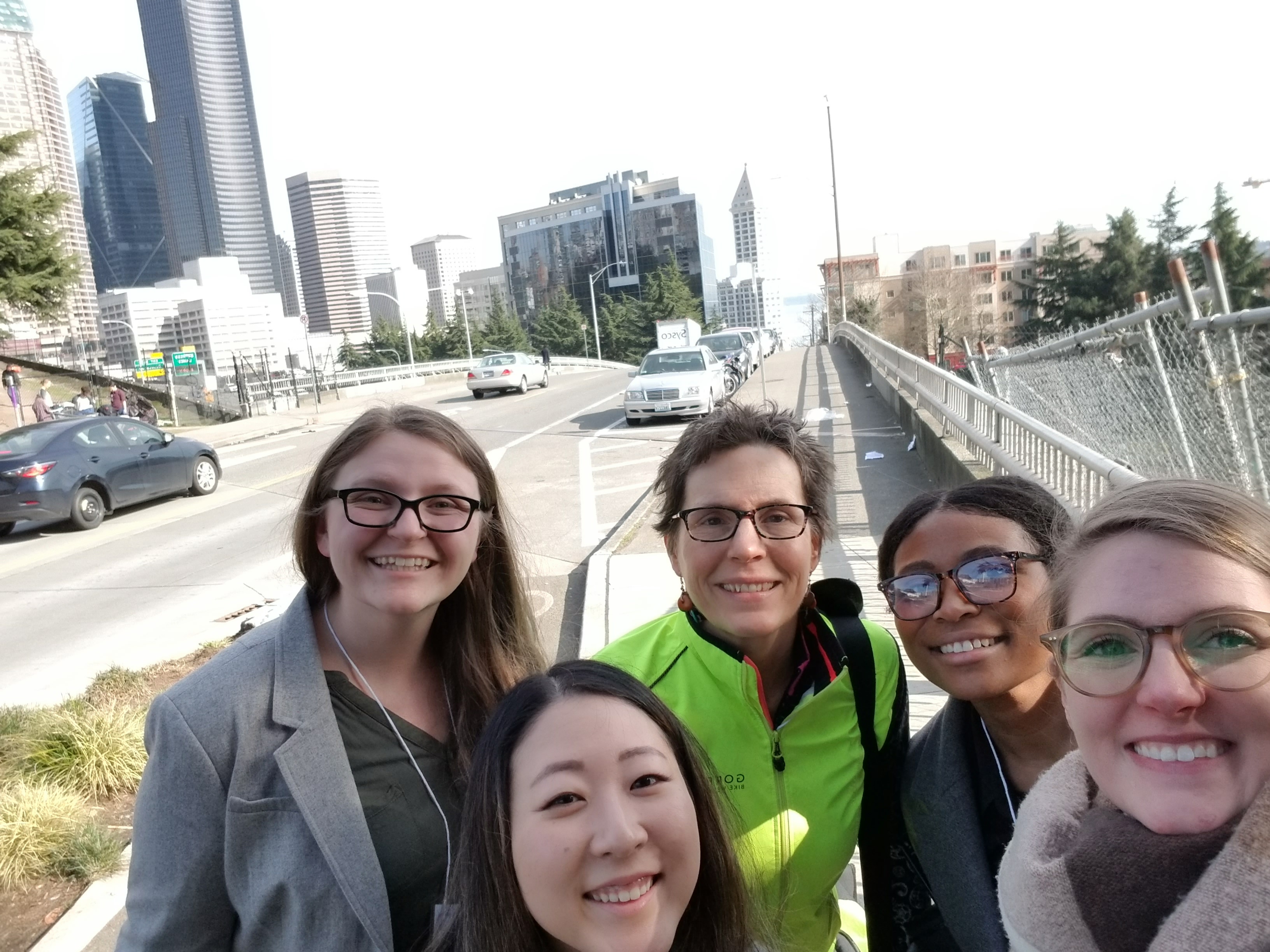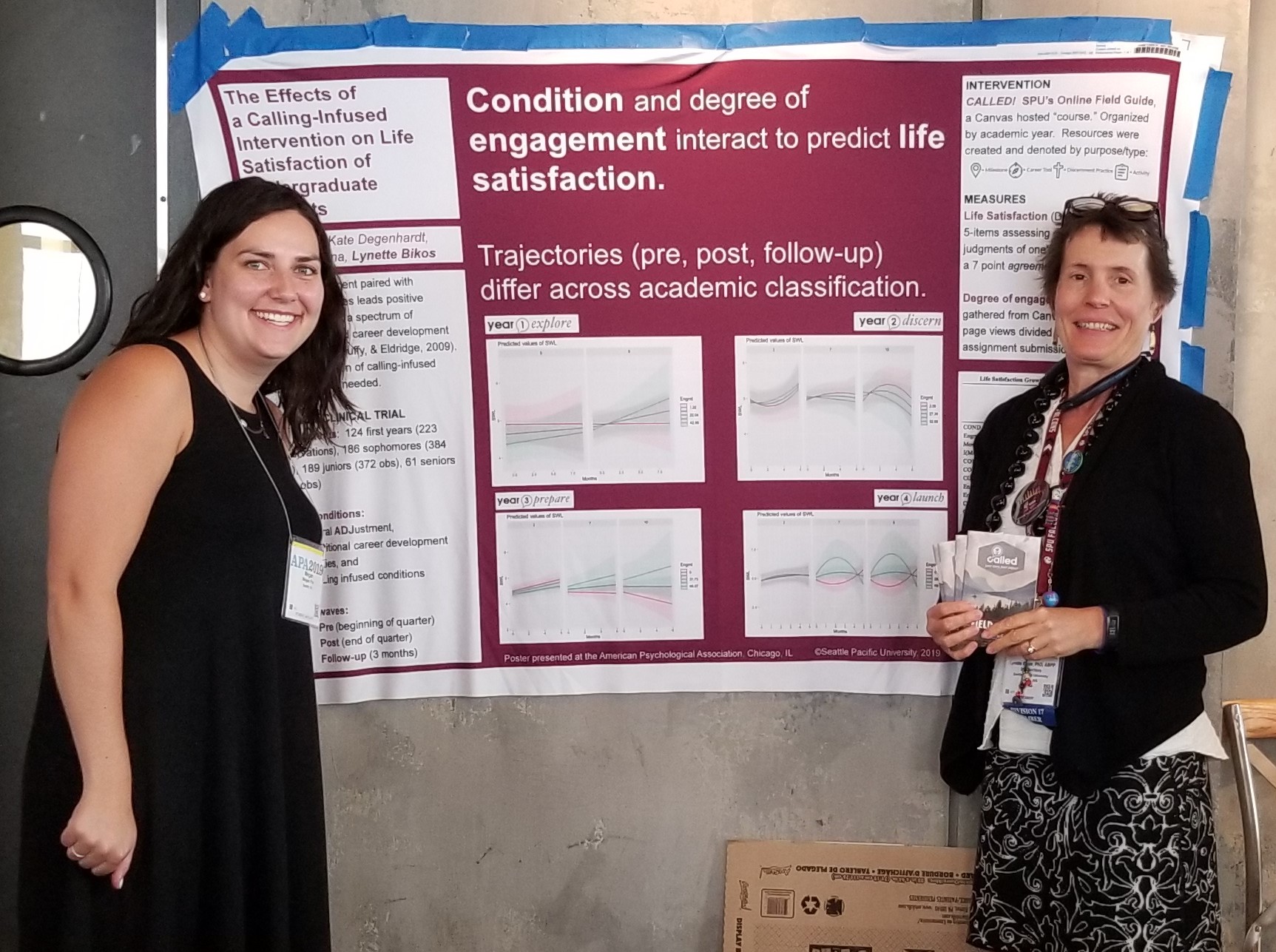RVT Expectations
The purpose of the research vertical team (RVT) is two-fold. First,
it is the primary venue in which students develop research skills and
engage in research projects. Second, it is the context in which the
student most regularly interacts with their primary faculty advisor, and
thus should be considered to serve an advisory function beyond research
training.
RVT Purpose
Professionalism
- All members of the department of clinical psychology are expected to
demonstrate professional competence and courtesy. This includes, for
example, holding ourselves to high standards, being collegial towards
each other, and taking RVT responsibilities seriously.
RVT Meetings
- RVT meets on Wednesdays (8:00 - 11am) when academic terms (all four quarters) are in session. Although you should reserve all three hours, we have a project management orientation where teams are simultaneously and sequentially scheduled during that period.
- The RVT meets in a Microsoft TEAMS environment. The screenshot shows a common Wednesday morning when a couple of project groups are meeting and others are hanging out in “Study Hall” – a place and time for dedicated, individual, work (like a writing accountability group).
- Plan for an additional 5-7 hours per week of work. More time may be needed when preparing for conferences and/or publication. Students are expected to work on their projects outside of RVT meetings, as most of the time is often spent on project updates.
- Attendance at each meeting is required – in fact you are enrolled in RVT (i.e., “research and dissertation”) as a course throughout the program.
- We move through the agenda quickly, so be prepared with assignments,
questions, and topics for discussion in advance.

Image of members of the Microsoft Teams site that houses the projects and meeting space of the Bikos RVT.
Contributing to the RVT in General
- All RVT members are expected to contribute to ongoing RVT projects. Typical contributions include literature searches, article summaries, and annotated bibliographies; data collection; data entry, cleaning, and analysis; and editing manuscripts, grant proposals, and conference presentations.
- We embrace a pay it forward attitude – newer team members assist with dissertation (and other) projects of more senior members.
- You can expect to both get and give professional feedback in this
RVT—this is an essential part of your development as a clinician and
researcher.
Bikos’ Idiosyncrasies
- Somewhat obsessed with details such as mastery of APA style, the use of hanging indents in MSWord, finding R packages that make beautiful tables and figures, and getting Qualtrics surveys to do the heavy lifting.
- Expects quick turnaround on e-mail correspondence. Advisees should check SPU e-mail 3X/day (more frequently during active projects).
- Seeks to create a “pay it all around” culture in the team.
- Bike/bus commuter. Love treats (particularly chocolate…but also super healthy ones) and sometimes brings them to RVT.
- Is consistently amazed by the caliber of the character and brilliance of our students and considers it a gift to be in this work.
- Students who excel in the Bikos team seek out learning
opportunities, are critical thinkers (and reviewers), and enjoy the
other members of the team.

Image of the BikosRVT in a virtual meeting. The masks have a copy of one of their conference posters on one side and an SPU logo on the other.
Typical RVT Trajectory
Year 1
- Attend weekly RVT meetings
- Start the MRP (mentored research project)
- Conduct the literature review
- Create a “mangy cat outline”
- Propose (in writing and formal presentation) the method
- Scrub and score data
- Obtain prelimniary results
- Join older cohort students in existing projects
- Engage in the one or more of the professional service activities of
the BikosRVT
Year 2
- Complete MRP
- Present a project as a poster or paper at non-SPU conference (WPA, APA, or specialty conference) AND volunteer in some capacity at the conference (networking!).
- Be working on a manuscript (like the MRP) that will be submitted for publication
- Assume leadership role within the RVT by shepherding newer members and leading/co-leading an RVT project
Year 3
- Co-author a manuscript that is submitted & accepted for
publication.
- Co-review (for a journal on which Dr. Bikos is an editorial board member) two manuscripts.
- Write your dissertation proposal; have it approved before the June 30th deadline
Year 4 and/or 5
- Collect and analyze dissertation data
- Defend dissertation before leaving for internship
Prior to applying for internship (fall, year 4 or 5), your goal
is to have 2-3 professional presentations, 1-2 co-authored publications,
2 co-peer-reviews, and leadership experience.
Year 5 and/or 6
- Internship.
- Defend dissertation (if not previously completed).
- Pop into the virtual team meeting every once in awhile to keep us apprised of life on the other side of the doctoral program. Your peer advising is valuable to our team.
It is not uncommon for students to add a year dedicated to enhancing experiences in clinical and research skills.

Image of members of the Bikos and Bentley RVTs headed for dim sum during a lunch break at the Society for Cross Cultural Research.

Image of a poster presentation at the Society of Vocational Psychology meeting at APA2019 meeting. The poster session was at a pizza luncheon – hence the blue painter’s tape.